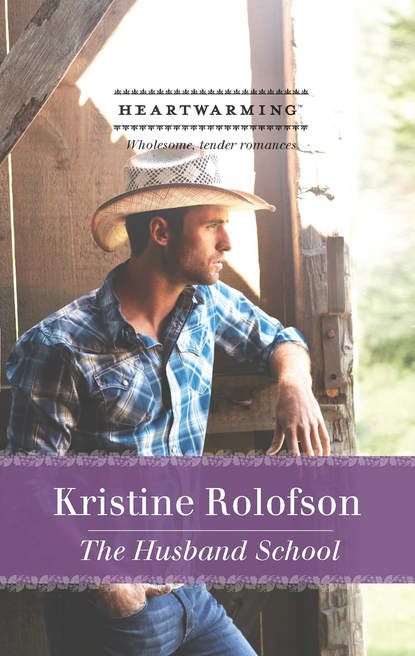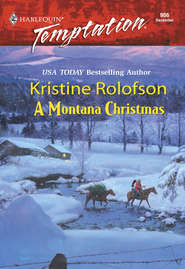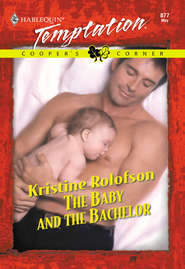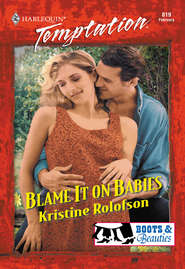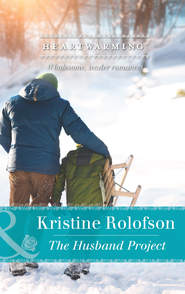По всем вопросам обращайтесь на: info@litportal.ru
(©) 2003-2024.
✖
The Husband School
Автор
Год написания книги
2019
Настройки чтения
Размер шрифта
Высота строк
Поля
“You’re an efficient guy.” Meg looked impressed. Owen wasn’t. He figured Jerry Thompson was too damn nosy. Despite the gloom-and-doom population study and the lack of social events, hosting a television show was just about the strangest idea he’d ever heard.
Jerry looked up from his papers. “Cam drank himself into a stupor last night and Aurora had to take him home when she closed up.”
“If Cam stopped drinking, he might still have a girlfriend,” Meg declared. “The guy needs help.”
“What’s in it for you?” Owen asked the mayor. “You must have known when you moved here there wasn’t much going on.”
“Uh, yeah.” He flushed, fiddled with his pen and avoided making eye contact with Owen. “I thought it was a great real-estate opportunity.”
“Uh-oh,” Meg said. “Broken heart?”
“Yes,” he admitted. “Tracy—the producer. We, uh, had a thing. About five years ago. She wouldn’t leave Los Angeles and I was having a really bad asthma problem. Smog,” he added. “I thought, well, never mind what I thought. We still text.” He glanced toward Owen. “Hey, it’s a start.”
He shrugged. “You do what you have to do.”
“She’ll be here in three weeks,” he said. “She’s coming for the weekend, before Halloween. She’ll get a taste of our picturesque Western town, meet the guys, see the sights and check out the festivities.”
“Festivities?” Owen remembered parties for the kids at the elementary school, teachers dressed as witches and decorations on a few houses, but he wouldn’t have described them as particularly festive.
“Big party at the Dahl the Saturday night before Halloween,” Jerry said. “There’s a raffle to see who gets to decorate the bear.”
“Your grandfather’s bear,” Les explained, in case Owen had forgotten. “It’s a big deal.”
Owen tried to picture the massive stuffed grizzly in a costume but couldn’t wrap his mind around it. He wondered if that was another one of the mayor’s crazy ideas.
“The base is cracked,” Jerry said. “We’re going to have to raise money to repair it soon.” He gave Owen a pointed look. “Unless you’d like to take care of that yourself.”
“Back to the list,” Meg said. “Who else do you have?”
“Maxine, rents a place out of town, has all those dogs. And then there’s you, of course.”
“Keep me off your lists.” Meg frowned. “Wait a minute. Why is there a list?”
“Because I needed to point out to the council—and to the preproduction team—that we have a lack of women to, uh, you know, get together with.”
“Like we didn’t know?” Les, who might have been bucked off one too many bulls, looked confused.
“They wanted to make sure we were legitimately short of women. To keep things accurate, I also have a list of all the single men in the county,” Jerry said, flipping through the notebook until he found the page he wanted. “I starred the ones who are between twenty-one and forty-five.”
“This gets better and better.” Meg leaned forward to peer at the names. “How many?”
“Forty-eight.” He glanced at Owen. “I didn’t put your name on here because, ah, it’s not like you really live here.”
“True.”
“But I can pencil you in,” he offered. “Have you ever wanted to be on television?”
“About as much as I want to sit naked in a pit of rattlesnakes,” Owen replied.
“Well,” said Meg, pushing back her chair, “that’s an appealing vision. I’m going to go back to work now and let you future reality stars work out the minor details.”
“Leave me out of this,” Owen said, but Meg ignored him. Again. He watched her head toward the counter, where one lonely patron sat nursing his coffee and reading People magazine.
“Damn.” Jerry closed his notebook and grimaced. “I wasn’t finished.”
“She used to be shy,” Owen said. “Quiet. Sweet.”
“No way,” one of the kids said. “She’s tough.”
“Hard-hearted,” another agreed. “Not like her mother. Loralee was always smiling and happy.”
“And not the brightest light on the porch.” Owen assumed Loralee, who was something of an airhead in the marriage department, had a lot to do with her daughter’s lack of enthusiasm for the men around here. He dropped a twenty-dollar bill on the counter and scooped up the Styrofoam container of bacon for Boo.
“Gentlemen,” he said, settling his hat on his head. “It’s been a pleasure, but I’m heading home.”
“I’ll be in touch when I get this thing going.” Jerry stood and shook Owen’s hand, as did the other three.
“I’m afraid I’m not going to be much help.” Because I don’t want to be on television, I don’t want to help turn the town into a dating game and I think you’re all pretty much insane.
CHAPTER THREE
MEG STOOD BEHIND the counter and fiddled with the money in the cash register as if it was the most important thing she’d done all morning.
She ignored the ringing phone, the clatter of dishes, the chatter between customers, and took a few moments to feel sorry for herself. There’d been times in her life when she wished she was drop-dead gorgeous, and this morning was one of them. She wished she’d been able to stun Owen MacGregor with her beauty, make him secretly regret their breakup, see him surprised and awed by the elegant Meg Ripley.
But that would never happen. Meg slammed the register drawer shut and thought about cleaning the restrooms. No, that could wait. She would pour more coffee and take more breakfast orders and help Al prepare for the lunch rush.
Wowing Owen, the “fine example of a Western man,” wasn’t going to happen. Meg was plain. She knew it. In fact, she’d been told as much from the age of four, when her pretty mother had no longer been able to hide her disappointment. Her daughter was, at best, nondescript. A shy child with brown eyes, brown hair, knobby knees and pink plastic eyeglasses, Meg wasn’t exactly a Miss Montana hopeful, though her mother had assured her that someday she would blossom into a lovely young woman. She had never blossomed. Not really. And certainly not to her mother’s expectations. She wore contacts now, but her eyes and hair remained a nondescript brown and she’d obviously inherited her decidedly nonvoluptuous body from her father’s side of the family.
She was grateful for that, actually. Her mother, sweet and foolish, had enjoyed looking in the mirror and unbuttoning her uniform to show a little more cleavage. “You have to flaunt ’em if you’ve got ’em,” she’d say, giving Meg a wink. Loralee believed in the power of blue eye shadow, underwire bras and high heels. And, despite having married five times, remained convinced that Mr. Right was just around the corner. The perpetual stack of romance novels next to her bed and her tendency to weep during made-for-TV movies led Meg to believe her mother would never, ever change. Despite Loralee’s exhausting marital history and age—sixty-two was a rough estimate—she showed no signs of slowing down. Men still circled around her to admire and be admired. Loralee didn’t disappoint.
“Meg!” Al broke into her self-pity. “Phone!”
She took the portable phone from him without looking at the caller ID.
“Willing Café,” she said, wondering if she should get her hair highlighted.
“Sweetie,” sang a familiar voice. “How’s everything at The Shame?”
There was no use reminding her mother that the “Dirty Shame” was now the much more respectable “Willing Café.” Loralee didn’t listen. “Hi, Mom. Believe it or not, I was just thinking about you.”
“You’ll never believe what Joan and I did this morning! We played golf! Can you believe it? Golf,” her mother chirped over the phone. “I’ve hit the mother lode.”
“The mother lode of what?”
Loralee, too busy talking to answer questions, had continued, “I’ve taken up golf myself. There are men everywhere, Megs. Lovely men who enjoy talking to a woman once in a while.”
Her mother wasn’t a gold digger or an opportunist. She’d married men she’d felt sorry for, or thought she was in love with and could help with their drinking problem or their gambling issues, or, in one drastic case in 1988, a shy trucker who’d decided it was time to go straight. Men took advantage of Loralee, not the other way around.





